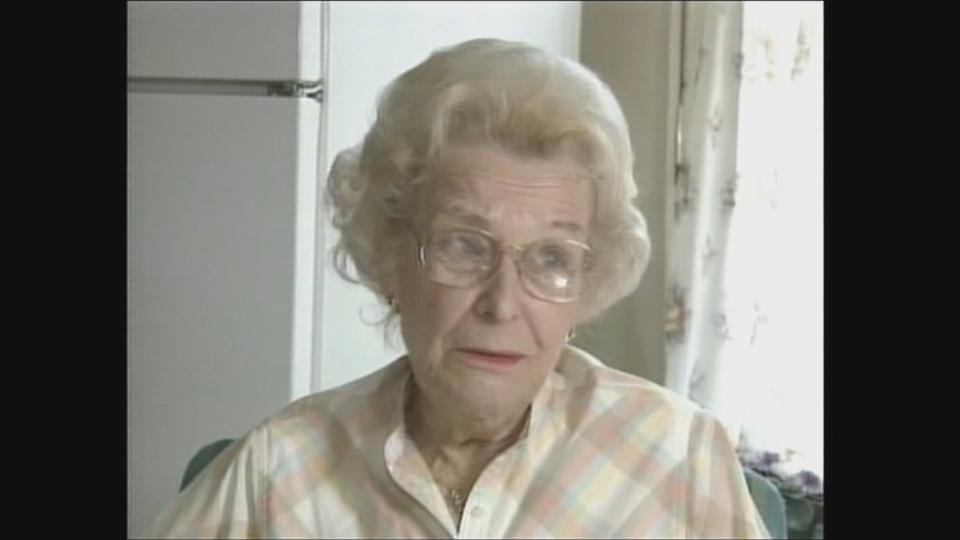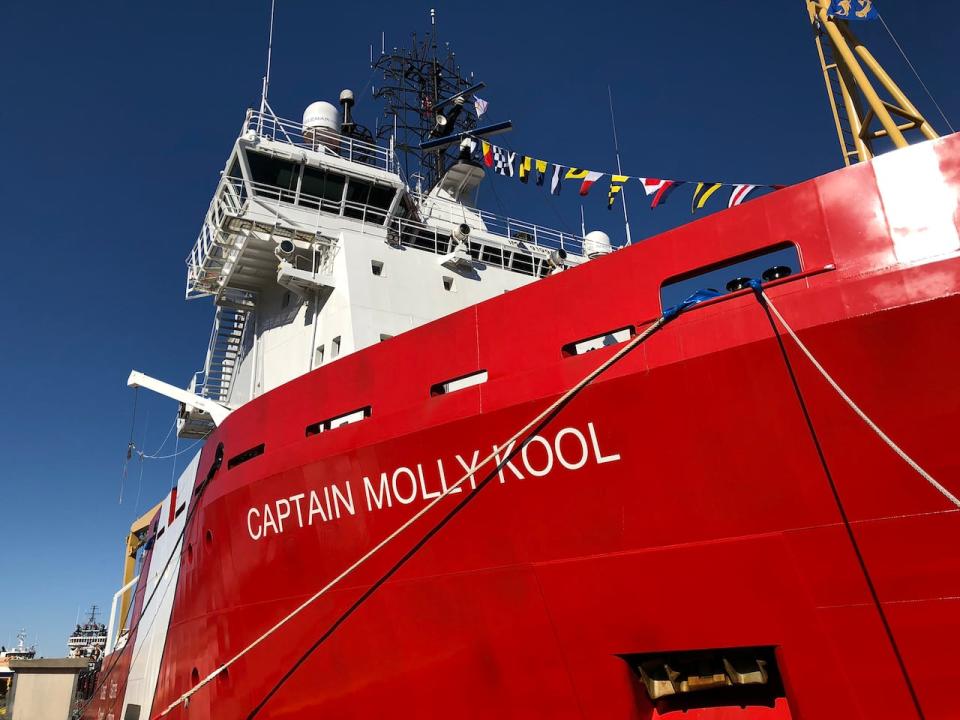'Call me captain.' Molly Kool became Canada's 1st female sea captain 85 years ago

It was 85 years ago that an Alma woman shattered a nautical glass ceiling to become Canada's first female ship captain.
Molly Kool, born in 1916, earned her captain's licence in May 1939, just as the depression was winding down and war in Europe was just visible on the horizon.
While it took until the late 30s for Kool to become certified, Christine Welldon, author of Molly Kool: Captain of the Atlantic, said the pioneering seafarer had long felt comfortable on a ship.
"Her father was a scow captain … from the time she was five years old, Molly would join him on the scow," said Welldon.
"She learned to steer with a little hands on the wheel next to her father's hands, standing on a box to see over the wheel and getting instructions from her dad," Paul Kool.

Female sea captains were so uncommon that Robert Ripley, of Ripley's Believe it or Not, hosted Kool on his radio program. (CBC Archives)
Growing up during the depression, Kool assisted on her father's ship because her family needed the help. The way she tells it, she was only doing her duty.
"He needed a seaman, I needed a job, so I started going to sea," said Kool.
Seen now as a pioneer, Welldon said the reason Kool took to the seas was more about pragmatism than feminism.
"She wasn't sympathetic to the women's lib movement because she was already doing a job meant for men, and she didn't think the average woman was as strong as a man."
While Kool was by all accounts a seasoned sailor even before she was certified, she was almost thwarted by some of the wording in licensing legislation.
"The Canada Shipping Act didn't have any feminine pronouns … so it followed that women could not be captains," said Welldon.
"She didn't give up. She applied over and over for the licence … and finally the wording in the Shipping Act was changed."

The CGCS Captain Molly Kool, an icebreaker 93.7 metres long by 18 metres wide, was named in the Alma native's honour in 2018. (Peter Cowan/CBC)
But the difficulties didn't end there.
While she was theoretically able to become a captain, she was told she would be unable to take the test because her presence could be a distraction to the other students — who were male.
A separate examiner was sent to Saint John to administer the test, which she passed.
"You can call me captain from now on," read a cable from Kool to her father.
While the law did allow for female captains, they still weren't common.
Short-lived career
They were so uncommon that Robert Ripley, of Ripley's Believe it or Not, hosted Kool on his radio program as a sort of oddity.
While Kool spent years at sea, her official career as captain was relatively short.
She retired in 1945 after marrying an American sailor.
"At last she knew the comforts of a real home on dry land rather than a narrow bunk in the hold of the scow, and she no longer had to get up in the middle of the night to get out with the tide," said Welldon.
"She really enjoyed that comfort."
Kool died in Bangor, Maine, in 2009.
Her childhood home in Alma was rebuilt and became the Molly Kool Heritage Centre to honour her legacy.


